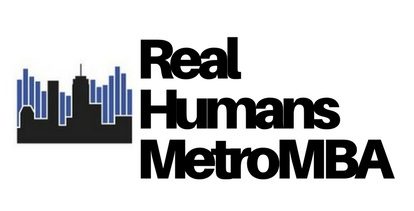Top U.S. Schools That Don’t Require the GMAT/GRE

Applying to a full-time MBA program without a GMAT or GRE is hard to come by for the world’s best MBA programs. Most top U.S. business schools require a competitive GMAT/GRE score to be considered for admissions. However, due to COVID-19, there are a number of top schools that do not require the GMAT or GRE by offering GMAT/GRE waivers.
If you are an MBA candidate who’s not great at taking tests or earned a low GMAT score, don’t worry; you’re not out of luck. There are five programs in the U.S. that will accept your MBA application without the GMAT/GRE, as long as you meet certain specific other requirements.
These are the top U.S. schools that don’t require a GMAT/GRE.
The University of Virginia – Darden School of Business
At the Darden School of Business for select candidates, a standardized test may not be necessary. As a pilot for the 2020-21 application cycle (for the Class of 2023), Darden announced a standardized test (GMAT/GRE) waiver request.
For some candidates, particularly those who meet several of the criteria outlined below, a test score may not be needed for the Darden Admissions Committee to assess their preparedness.
Waiver requests will be evaluated on a case-by-case basis, and the Darden Admissions Committee will consider a number of factors when evaluating these requests. Particular regard will be given for indicators of academic and professional accomplishment, including but not limited to:
- A strong undergraduate and/or graduate record, including performance in analytical coursework or disciplines
- CPA or CFA designation or other professional certification
- Master’s or advanced degree in an analytical discipline
- Seven or more years of progressive, professional work experience in an analytical field
- Strong performance on a U.S. college admissions test (SAT or ACT) or a national exam administered for admission to bachelor’s study in other countries
These factors will be considered in combination with resume and transcripts for all degree-related coursework. Candidates who present a strong profile across several criteria (including supporting materials) are more likely to be granted a test waiver than candidates who meet only one criterion.
Candidates who believe they may qualify for a test waiver on the basis of the above criteria should submit a test waiver request.
Indiana University – Kelley School of Business
The Kelley School of Business Full-Time MBA program admits high-potential applicants for their academically rigorous curriculum. Kelley typically requires the GMAT or GRE as one demonstration of quantitative and analytic capability. In light of the recent challenges associated with taking standardized tests due to COVID-19, candidates may apply for a waiver of this requirement and submit other evidence of their academic qualifications. Kelley anticipates awarding GMAT/GRE waivers for a small percentage of their incoming class. In evaluating waiver requests, Kelley considers many factors, including rigor and achievement from previous undergraduate and graduate degrees, evidence of work experience requiring analytical and quantitative skills, and post–bachelor’s degree career growth including demonstration of leadership.
To request a GMAT/GRE waiver, you must complete the following two steps:
- Complete and submit the Kelley online information request form (to ensure that we have your most current contact information); and
- Submit via email (iumba@indiana.edu) a current professional resume, your unofficial or official undergraduate transcripts (and graduate school transcripts, if applicable), and a brief statement (500 words or less) summarizing why you believe you qualify for a waiver.
The University of North Carolina – Kenan-Flagler School of Business
The UNC Kenan-Flagler Full-Time MBA considers standardized tests such as the GMAT or GRE are a as a beneficial way for their Admissions Committee to evaluate the likelihood of academic success in their Full-Time MBA program, they recognize that some candidates can build a strong case for admission based on degrees earned, academic experience, professional milestones, or certifications. GMAT/GRE waivers are available for new applicants to the UNC Kenan-Flagler Full-Time MBA class of 2023.
Important points to consider before requesting a GMAT/GRE waiver:
- Be objective about your strengths and weaknesses in order to put together the strongest application! Consider whether a test score may help supplement your academic achievements.
- Candidates who present a strong profile across several criterion – such as five or more years of progressive work experience, earning secondary or terminal degrees (i.e. master’s, PhD, JD, MD), professional certifications with a quantitative focus (i.e. U.S. CPA or CFA Level III), or strong test results from the Executive Assessment, LSAT, or MCAT – are more likely to be granted a test waiver.
- Test scores are often a beneficial data point (but not required) for the Fellowship Committee when evaluating an admitted student for a fellowship award.
- Some employers use (or require) test scores during initial screenings, particularly in finance and consulting.
- Receiving a GMAT/GRE waiver does not guarantee admission to the program, and for some applicants, formal offers of admission may be based on the successful completion of Analytical Skills Workshop (ASW) prior to the start of the program.
The University of Texas – McCombs School of Business
The McCombs Full-Time MBA is providing the opportunity to petition for a special test score exception, if you have not been able to take the GMAT, GRE, EA, or TOEFL exams due to the following reasons related to COVID-19:
Applicants who meet both of the criteria below have the opportunity to petition for a special test waiver:
- You are unable to take an exam in-person at a designated testing center due to lack of availability in your region, or because you or someone in your household is immunocompromised, AND
- You are unable to take an exam online due to lack of availability in your region, technology or other test-taking requirements (e.g. device availability or compatibility, slow internet connection, testing environment)
If you do not meet both of these criteria, McCombs requires that you complete the standardized tests prior to submitting your application.
The University of Minnesota – Carlson School of Management
The Carlson School of Management continues to be one of the best MBA programs in the midwest. Candidates applying for admission to the Carlson Full-Time MBA program may be eligible for a GMAT/GRE waiver if they meet the following criteria:
- Must have one of the following:
- Previous undergraduate degree with 3.2+ cumulative GPA at an accredited institution using a 4.0 scale or better (domestic or international)
- Demonstrates quantitative ability through coursework (ex: Statistics, Engineering, Accounting, etc)
- Previous undergraduate degree in a STEM (Science, Technology, Engineering, Mathematics, etc) field with a 3.0+ cumulative GPA at an accredited institution using a 4.0 scale or better (domestic or international)
- Previous undergraduate degree with 3.2+ cumulative GPA at an accredited institution using a 4.0 scale or better (domestic or international)
- Must have one of the following additional requirements:
- 5+ years of full-time professional work experience
- Note: internships or co-ops cannot be included. Graduate assistantships and fellowships can be included.
- 4+ years of full-time military experience
- Graduate (masters or doctoral) degree
- Professional credential of CPA or CFA
- 5+ years of full-time professional work experience
Please note that a candidate must meet both areas requirements of the waiver process in order to be granted a waiver.
The Ohio State University – Fisher College of Business
The Fisher Full-Time MBA will consider your application without a GMAT, GRE, or EA test score as long as you meet the following minimum qualifications:
- Earned a 3.2 (on a 4.0 scale) undergraduate cumulative GPA or higher; and
- Achieved a grade of B or better in at least two college-level quantitative courses (algebra or higher); and
- Have a minimum of 4 years of post-baccalaureate work experience. You may not request a waiver if you have already taken the exam and requested your scores be sent to The Ohio State University.
The decision to grant the GMAT/GRE/EA waiver is made at the discretion of the Fisher Admissions Committee. Should the committee decide that a GMAT,GRE, or EA score is needed to fully evaluate your candidacy for the MBA program, you will be informed once your application has been initially reviewed.
In summary, if you are preparing your MBA application, be sure to review each schools official GMAT/GRE waiver process to ensure that you meet the requirements to request a GMAT/GRE waiver so you can attend a top-tier program. The U.S. schools that do not require the GMAT/GRE during COVID-19 may continue to expand, so stay up-to-date by registering with MetroMBA for more announcements.
Additional Resources:
MBA Programs that do not require the GMAT or GRE
Top Canadian Schools That Don’t Require the GMAT

Applying to an MBA program without a GMAT score can be a tricky business. Most business schools in the U.S. and Canada require a competitive GMAT score to be considered for admissions. However, that’s not always possible for every applicant.
If you are an MBA candidate who’s not great at taking tests or earned a low GMAT score, don’t worry; you’re not out of luck. There are five programs in Canada that will accept your MBA application without the GMAT, as long as you meet certain specific other requirements.
These are the top Canadian schools that don’t require a GMAT. Continue reading…
York Schulich’s Groundbreaking Building Opens Its Doors, and More – Toronto

Toronto‘s finest business schools have spent the new year making positive contributions to the fast-changing world of business education. We’ve laid out some of the high points.
How Business Schools Are Adapting to the Changing World of Work – CBC News
In the age of information, the business arena is changing at record pace. In order to keep up, Canadian business schools are shifting focus from concrete skills to abstract ones. Creativity and innovation, for example, are at the forefront of the curriculum for schools like Western University Canada’s Ivey Business School. In fact, Ivey recently staff conducted 250 interviews with international industry leaders in order to glean which skills are in high demand in today’s marketplace.
“Although people do need to have the technical literacy that’s probably higher than before—the skills that are really demanded are the soft skills that will allow them to adapt,” says Mark Vandenbosch, acting Ivey Dean. Among the most important skills, Vandenbosch listed “creativity, grit, teamwork … and decision-making skills.”
“We provide a lot of support post graduation for those who want to come back at a later time to start a venture two, three, or four years later.”
Learn more about the demand for soft skills in the marketplaces here.
New Schulich School Building Opens at Toronto’s York University – Canadian Architect
On January 11, York University’s Schulich School of Business opened the doors of the Rob and Cheryl McEwen Graduate Study & Research Building. The building, designed by Baird Sampson, is among the most environmentally efficient academic buildings in North America. Funding from the Canadian Government’s Post-Secondary Institutions Strategic Investment Fund, Schulich’s Leading Change fundraising campaign, and a generous donation from Rob and Cheryl McEwen made the $50 million project possible.

The all new Rob and Cheryl McEwen Graduate Study & Research Building, opened Jan. 11 at the York University School of Business.
The building will house Schulich’s Research Office, as well as the Centre of Excellence in Responsible Business, the Schulich Centre for Global Enterprise, the Brookfield Centre in Real Estate and Infrastructure, and the newly-established Centre of Excellence in Business Analytics and Artificial Intelligence.
You can read more about the new York Schulich building addition here.
New Arrival to Canada Finds What He Was Missing – The Globe and Mail
Voyt Kryzchylkiewicz moved to Canada from Johannesburg to pursue his EMBA at University of Toronto’s Rotman School of Management and launch a business venture. In his first blog entry for EMBA Diary, he discusses those challenges and lessons of the past year of his life.
Before his move to Canada, Kryzchylkiewicz served as a board member at several companies in Europe and Africa. However, his experience with Canadian companies was limited, and he did not meet the criteria to be considered for similar positions in his new home. Kryzchylkiewcz entered Rotman with the hope of developing a professional network in Canada.
“While building my knowledge through Rotman has indeed proved valuable, the real benefits of the EMBA are the relationships that I have made, both business and personal,” Kryzchylkiewicz says. “This has already propelled my business forward and provided me with significant opportunities that I would not have had otherwise.”
Learn more about Kryzchylkiewicz’s experience here.
Real Humans of the York University Schulich School of Business

A half century after the opening of the York University Faculty of Administrative Studies (FAS), the York Schulich School of Business in Toronto continues to shape the Canadian MBA landscape.
The business school, which was officially renamed in 1995 after a receiving sizable donation from esteemed Montreal philanthropist and entrepreneur Seymour Schulich, has earned a substantial track record of firsts in Canada, including: the country’s first MBA Arts & Media Administration specialization; MBA/LLB; Nonprofit Management and Leadership Program; International MBA; Financial Services Program; Financial Engineering specialization; and the first multi-national EMBA program with the Northwestern University Kellogg School of Management.

Of course, the history of a school may paint an overall setting, but it hardly tells the story of a current, individual student in the program. York Schulich MBAs stand out among many of Toronto’s stellar business schools, typically enrolling with a GMAT score of 660 and five years of professional work experience. As well, the York Schulich international community is well-represented, at 32 percent of the overall MBA class.
According to recent employment statistics provided by the school, Schulich MBAs typically earn about $91,500 CAD per year after earning their degree. In addition, about 89 percent of graduates earn employment just three months after graduating. Most grads earn roles in finance (23 percent), with marketing/sales (20 percent) and operations (18 percent) following closely.
To get a better feel for what life is really like for current York Schulich MBAs, we talked to a handful of students, including the manager of a long-standing luxury jewelry store, a theater major and performer, and a commercial lawyer looking for a brand new career challenge. Read on to see their stories and what the future may hold for life after an MBA.
Rotman Research Promotes Personal Data Advocacy, and More – Toronto News

Canadian business schools have made valuable contributions this week. From providing life-saving researching, to creating ethical programs that will produce ethical leaders, Canada’s top schools are certainly doing their part to better their communities. We’ve laid out some of the high points below.
Western Researchers Study Overdose Antidote in High Schools – The London Free Press
Researchers from Western University Canada’s Ivey Business School and Schulich School of Medicine and Dentistry recently joined forces to determine whether supplying high schools with an antidote to opioid overdose would be a cost-effective way to combat Canada’s rising problems. Naloxone prevents the physical effects of consuming toxic amounts of opioids, and having the drug in supply in schools could save lives. However, this solution to rising opioid overdoses would cost money.
The researchers evaluate the cost-effectiveness of implementing a naloxone program in schools, wherein the drug is supplied and the staff is trained in its use. Study authors Greg Zaric and Lauren Cipriano put together a spreadsheet that would allow schools to determine the cost and benefit of starting a program in their specific area.
“We think every school board should be evaluating a program like this using a tool of procedure like this to see if they really are getting the best use of their available funds…there are lots of things that we can do in schools to improve the health and safety of students,” Zaric says, “We want to make sure the portfolio of medical and health interventions that we provide to students is getting us the best possible health impact for the amount of money we’re investing.”
You can read more about the cost of Naloxone programs here.
It’s Time to Pay Consumers For Their Data – The Globe and Mail
Richard Nesbitt and Brian O’Donnell, of the Global Risk Institute in Financial Services, wrote an article for The Globe and Mail that advocates giving consumers more control over how data is used. In addition to his role as CEO of the Global Risk Institute in Financial Services, Nesbitt is an adjunct professor at the University of Toronto’s Rotman School of Management.
Their article specifically addresses the need for “personal data advocacy.” The co-authors believe an institution should work with people, “to gather, protect, and monetize their personal data.” According to the article, social media sites have made trillions of dollars off of user data, leaving users with none of the benefits and all of the security and privacy risks.
Brian O’Donnell and Richard Nesbitt write:
“With ownership of their data, individuals could then decide how they want their data used. For example, do they want to lock it down, sell it or donate it to a charity or research organization?”
Read more about personal data advocacy here.
What is a Sustainable MBA? – Study International News
York University’s Schulich School of Business’s sustainable MBA was ranked the third best program by Study International News. A sustainable MBA is one that puts environmental and social considerations before the bottom line. Critics claim that traditional MBA’s breed leaders who put their own profit before the welfare of their community. This view is so pervasive, that the ‘evil corporation’ has become a pop-culture trope.

The Schulich MBA is lauded as one of the best in the world when it comes to sustainability education, according to Study International News.
School’s like Schulich, however, are cultivating programs that could change this perspective. Warwick University and the University of Exeter Business School nabbed the first and second rankings. It is clear that Canada is a leader in sustainable MBA’s, with 11 Canadian schools topping the list of the Better World MBA Rankings.
Julia Christensen Hughes, University of Guelph says:
“MBA programs—the most dominant graduate degree in the world—must endeavor to develop the leaders so desperately needed. And this is where Canada can truly lead.”
You can read more about the Schulich sustainable MBAs here.
Upcoming December MBA Application Deadlines

As winter approaches and December comes into clear view, let’s review all the major upcoming MBA application deadlines for December and January. Get those applications in ASAP so you have more time to enjoy the holidays with friends and family as you await your acceptance letter in 2019. Best of luck, and Happy New Year in advance! Continue reading…
